77 have author last names that start with M have author last names that start with M

The Georgetown Dictionary of Iraqi Arabic is a modernized, up-to-date dialectal Arabic language resource that promotes successful daily communication with native Arabic speakers. Students, teachers, and scholars of Arabic will welcome this dramatically overhauled edition of one of the only Arabic dialect dictionaries of its kind—establishing a new standard in Arabic reference.
This comprehensive reference focuses on conversation, emphasizing the colloquial speech of educated residents of Baghdad. The dictionary assumes familiarity with the Arabic alphabet, the standard organization of Arabic dictionaries along the triconsonantal root system, and the formation of Arabic verb forms.
• Approximately 17,500 Iraqi Arabic entries• Approximately 10,750 English-to-Iraqi entries• An increase of more than 30 percent in terms that reflect current vocabulary and usage• Provides conventional Arabic script for main entries, and organized by root, as standard for Arabic dictionaries• Employs International Phonetic Alphabet (IPA) for all terms to demonstrate correct pronunciation• Offers extensive example sentences to illustrate how the Iraqi words are used• Indicates relevant parts of speech for each Iraqi entry and subentry
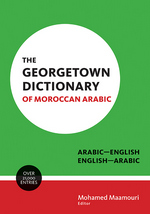
The Georgetown Dictionary of Moroccan Arabic is a modernized language resource for learning and studying Moroccan Arabic that updates the pioneering Arabic dialect dictionary published by Georgetown University Press over fifty years ago. Students, teachers, and scholars of Arabic will welcome this upgraded resource, which includes key Moroccan words, to grow their vocabulary and learn more about Moroccan Arabic language and culture. Created using the latest computational linguistics approaches and tools, this etymological dictionary represents a new generation of Arabic language reference materials designed to help English speakers gain proficiency in colloquial Arabic dialects. Scholars and linguists are certain to find this complex and challenging dialect informative and useful in discussions of Arabic dialectology.
• Features over 13,000 Moroccan Arabic–English entries and 8,000 English–Arabic entries
• Provides entries in Arabic script and organized by root, as is standard in Arabic dictionaries
• Employs International Phonetic Alphabet (IPA) for all terms to demonstrate correct pronunciation and allow comparison across dialects
• Includes borrowed words commonly used in Moroccan Arabic, such as those from French, Spanish, and Amazigh
• Contains extensive example sentences and an appendix showing the roots of words with prefixes, both to help learners

Intended for the general student of the Indonesian language and the professional linguist, this short descriptive grammar is a useful guide as a well as a point of departure for more intensive study.

Leavened with compassion, common sense, and a readable style, this introduction to complicated bioethical issues from both Jewish and Catholic perspectives is as informative as it is undaunting. Aaron Mackler takes the reader through methodology in Roman Catholic moral theology and compares and contrasts it with methodology as it is practiced in Jewish ethics. He then skillfully wends his way through many topics foremost on the contemporary ethical agenda for both Jewish and Catholic ethicists: euthanasia and assisted suicide, end-of-life decisions, abortion, in vitro fertilization, and the ever-growing problem of justice regarding access to health care and medical resources. A concluding chapter summarizes general tendencies in the comparison of the two traditions, and addresses the significance of convergence and divergence between these traditions for moral thinkers within each faith community, and generally in western democracies such as the United States.
As Mackler overviews these issues, he points out the divergences and the commonalities between the two traditions—clarifying each position and outlining the structure of thinking that supports them. At the heart of both Catholic and Jewish perspectives on bioethics is a life-affirming core, and while there may be differences in the "why" of those ethical divergences, and in the "how" each arrived at varying—or the same—conclusions, both traditions, in the words of James McCartney as quoted in the introduction, "are guided by the principle that life is precious; that we are bidden to preserve and guard our health; that we are bidden to intervene in nature to raise the human estate; and that our lives are not our own, but are part of the legacy bequeathed to us by the Creator." This book has been carefully crafted in that spirit.

Economic reasoning has thus far dominated the field of public policy analysis. This new introduction to the field posits that policy analysis should have both a broader interdisciplinary base—including criteria from such fields as political science, sociology, law, and philosophy, as well as economics—and also a broader audience in order to foster democratic debate.
To achieve these goals, MacRae and Whittington have organized their textbook around the construction of decision matrices using multiple criteria, exploring the uses of the decision matrix formulation more fully than other texts. They describe how to set up the matrix, fill in cells and combine criteria, and use it as an aid for decision making. They show how ethical assessment of the affects that alternatives have on various parties differs from political analysis, and then they extend the use of the decision matrix to consider alternatives by affected parties, periods of time, or combined factors.
The authors also thoughtfully address the role of expert advice in the policy process, widening the scope of the field to describe a complex system for the creation and use of knowledge in a democracy.
An extended case study of HIV/AIDS policy follows each chapter (in installments), immediately illustrating the application of the material. The book also contains a glossary.
Expert Advice for Policy Choice provides a new basis for graduate education in public policy analysis and can also serve as a text in planning, evaluation research, or public administration. In addition, it will be of interest to students and professionals wishing to aid policy choice who work in such fields as sociology, political science, psychology, public health, and social work.

Throughout history and across cultures, the spy chief has been a leader of the state security apparatus and an essential adviser to heads of state. In democracies, the spy chief has become a public figure, and intelligence activities have been brought under the rule of law. In authoritarian regimes, however, the spy chief was and remains a frightening and opaque figure who exercises secret influence abroad and engages in repression at home.
This second volume of Spy Chiefs goes beyond the commonly studied spy chiefs of the United States and the United Kingdom to examine leaders from Renaissance Venice to the Soviet Union, Germany, India, Egypt, and Lebanon in the twentieth century. It provides a close-up look at intelligence leaders, good and bad, in the different political contexts of the regimes they served. The contributors to the volume try to answer the following questions: how do intelligence leaders operate in these different national, institutional and historical contexts? What role have they played in the conduct of domestic affairs and international relations? How much power have they possessed? How have they led their agencies and what qualities make an effective intelligence leader? How has their role differed according to the political character of the regime they have served? The profiles in this book range from some of the most notorious figures in modern history, such as Feliks Dzerzhinsky and Erich Mielke, to spy chiefs in democratic West Germany and India.

Intelligence agencies spend huge sums of money to collect and analyze vast quantities of national security data for their political leaders. How well is this intelligence analyzed, how often is it acted on by policymakers, and does it have a positive or negative effect on decision making? Drawing on declassified documents, interviews with intelligence veterans and policymakers, and other sources, The Image of the Enemy breaks new ground as it examines how seven countries analyzed and used intelligence to shape their understanding of their main adversary. The cases in the book include the Soviet Union's analysis of the United States (and vice versa), East Germany's analysis of West Germany (and vice versa), British intelligence in the early years of the Troubles in Northern Ireland, Israeli intelligence about the Palestinians, Pakistani intelligence on India, and US intelligence about Islamist terrorists.
These rivalries provide rich case studies for scholars and offer today’s analysts and policymakers the opportunity to closely evaluate past successes and failures in intelligence analysis and the best ways to give information support to policymakers. Using these lessons from the past, they can move forward to improve analysis of current adversaries and future threats.
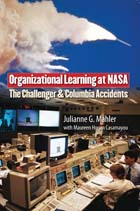
Just after 9:00 a.m. on February 1, 2003, the space shuttle Columbia broke apart and was lost over Texas. This tragic event led, as the Challenger accident had 17 years earlier, to an intensive government investigation of the technological and organizational causes of the accident. The investigation found chilling similarities between the two accidents, leading the Columbia Accident Investigation Board to conclude that NASA failed to learn from its earlier tragedy.
Despite the frequency with which organizations are encouraged to adopt learning practices, organizational learning—especially in public organizations—is not well understood and deserves to be studied in more detail. This book fills that gap with a thorough examination of NASA’s loss of the two shuttles. After offering an account of the processes that constitute organizational learning, Julianne G. Mahler focuses on what NASA did to address problems revealed by Challenger and its uneven efforts to institutionalize its own findings. She also suggests factors overlooked by both accident commissions and proposes broadly applicable hypotheses about learning in public organizations.

This book presents the first large-scale study of lobbying strategies and outcomes in the United States and the European Union, two of the most powerful political systems in the world. Every day, tens of thousands of lobbyists in Washington and Brussels are working to protect and promote their interests in the policymaking process. Policies emanating from these two spheres have global impacts—they set global standards, they influence global markets, and they determine global politics. Armed with extensive new data, Christine Mahoney challenges the conventional stereotypes that attribute any differences between the two systems to cultural ones—the American, a partisan and combative approach, and the European, a consensus-based one.
Mahoney draws from 149 interviews involving 47 issues to detail how institutional structures, the nature of specific issues, and characteristics of the interest groups combine to determine decisions about how to approach a political fight, what arguments to use, and how to frame an issue. She looks at how lobbyists choose lobbying tactics, public relations strategies, and networking and coalition activities. Her analysis demonstrates that advocacy can be better understood when we study the lobbying of interest groups in their institutional and issue context. This book offers new insights into how the process of lobbying works on both sides of the Atlantic.
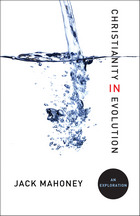
Evolution has provided a new understanding of reality, with revolutionary consequences for Christianity. In an evolutionary perspective the incarnation involved God entering the evolving human species to help it imitate the trinitarian altruism in whose image it was created and counter its tendency to self-absorption. Primarily, however, the evolutionary achievement of Jesus was to confront and overcome death in an act of cosmic significance, ushering humanity into the culminating stage of its evolutionary destiny, the full sharing of God’s inner life. Previously such doctrines as original sin, the fall, sacrifice, and atonement stemmed from viewing death as the penalty for sin and are shown not only to have serious difficulties in themselves, but also to emerge from a Jewish culture preoccupied with sin and sacrifice that could not otherwise account for death. The death of Jesus on the cross is now seen as saving humanity, not from sin, but from individual extinction and meaninglessness. Death is now seen as a normal process that affect all living things and the religious doctrines connected with explaining it in humans are no longer required or justified. Similar evolutionary implications are explored affecting other subjects of Christian belief, including the Church, the Eucharist, priesthood, and moral behavior.

Transnational Actors in War and Peace provides a comparative examination of a range of transnational actors who have been key to the conduct of war and peace promotion, and of how they interact with states and each other. It explores the identities, organization, strategies and influence of transnational actors involved in contentious politics, armed conflict, and peacemaking.
While the study of transnational politics has been a rapidly growing field, to date, the disparate actors have not been analyzed alongside each other, making it difficult to develop a common theoretical framework or determine their influence on international security. This book brings together a diverse set of scholars focused on a range of transnational actors, such as: foreign fighters, terrorists, private military security companies, religious groups, diasporas, NGOs, and women’s peace groups. Malet and Anderson provide the standard for future study of transnational actors in this work intended for those interested in security studies, international relations, conflict resolution, and global governance.

This is the first book to examine challenges in the healthcare sector in the six Gulf Cooperation Council (GCC) countries (Saudi Arabia, Oman, the United Arab Emirates, Qatar, Kuwait, and Bahrain). These countries experienced remarkably swift transformations from small fishing and pearling communities at the beginning of the twentieth century to wealthy petro-states today. Their healthcare systems, however, are only now beginning to catch up.
Rapid changes to the population and lifestyles of the GCC states have completely changed—and challenged—the region’s health profile and infrastructure. While major successes in combatting infectious diseases and improving standards of primary healthcare are reflected in key health indicators, new trends have developed; increasingly “lifestyle” or “wealthy country” diseases, such as diabetes, heart disease, and cancer, have replaced the old maladies. To meet these emerging healthcare needs, GCC states require highly trained and skilled healthcare workers, an environment that supports local training, state-of-the-art diagnostic laboratories and hospitals, research production and dissemination, and knowledge acquisition. They face shortages in most if not all of these areas. This book provides a comprehensive study of the rapidly changing health profile of the region, the existing conditions of healthcare systems, and the challenges posed to healthcare management across the six states of the GCC.

Cyberattacks are one of the greatest fears for governments and the private sector. The attacks come without warning and can be extremely costly and embarrassing.
Robert Mandel offers a unique and comprehensive strategic vision for how governments, in partnership with the private sector, can deter cyberattacks from both nonstate and state actors. Cyberdeterrence must be different from conventional military or nuclear deterrence, which are mainly based on dissuading an attack by forcing the aggressor to face unacceptable costs. In the cyber realm, where attributing a specific attack to a specific actor is extremely difficult, conventional deterrence principles are not enough. Mandel argues that cyberdeterrence must alter a potential attacker’s decision calculus by not only raising costs for the attacker but also by limiting the prospects for gain. Cyberdeterrence must also involve indirect unorthodox restraints, such as exposure to negative blowback and deceptive diversionary measures, and cross-domain measures rather than just retaliation in kind.
The book includes twelve twenty-first-century cyberattack case studies to draw insights into cyberdeterrence and determine the conditions under which it works most effectively. Mandel concludes by making recommendations for implementing cyberdeterrence and integrating it into broader national security policy. Cyber policy practitioners and scholars will gain valuable and current knowledge from this excellent study.
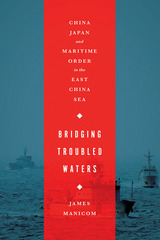
Sino-Japanese relations have been repeatedly strained by the territorial dispute over a group of small islands, known as the Senkaku islands in Japan and the Diaoyu islands in China. The rich fishing grounds, key shipping lanes, and perhaps especially, potentially rich oil deposits around the islands exacerbate this dispute in a confluence of resource pressures, growing nationalism, and rising military spending in the region.
Bridging Troubled Waters reminds us that the tensions over the Senkaku/Diaoyu islands are only a part of a long history of both conflict and cooperation in maritime relations between Japan and China. James Manicom examines the cooperative history between China and Japan at sea and explains the conditions under which two rivals can manage disputes over issues such as territory, often correlated with war.
China and Japan appear incapable of putting history behind them, are poised on the brink of a strategic rivalry, and seem at risk of falling into an unintentional war over disputed maritime claims. Bridging Troubled Waters challenges this view by offering a case-by-case analysis of how China and Japan have managed maritime tensions since the dispute erupted in 1970. The author advances an approach that offers a trade-off between the most important stakes in the disputed maritime area with a view to establishing a stable maritime order in the East China Sea. The book will be of interest to policymakers, academics, and regional specialists in Asia, security studies, and international conflict and cooperation.

For most of the history of the United States, citizens and elected officials alike considered elementary and secondary education to be the quintessential state and local function. Only in the past four decades, from Lyndon B. Johnson's signing of the landmark Elementary and Secondary Education Act of 1965 to George W. Bush's ambitious but controversial "No Child Left Behind" initiative, has Washington's influence over America's schools increased significantly. Today, many Americans have become more convinced that the U.S. government and the states should play an increasingly important role in the nation's schools.
In School's In, Paul Manna looks over forty years of national education policymaking and asserts that although Washington's influence over American schools has indeed increased, we should neither overestimate the expansion of federal power nor underestimate the resiliency and continuing influence of the states. States are developing comprehensive—often innovative—education policies, and a wide array of educational issues have appeared on the political agenda at the state and national levels.
Manna believes that this overlap is no accident. At the core of his argument is the idea of "borrowing strength," a process by which policy entrepreneurs at one level of government attempt to push their agendas by leveraging the capabilities possessed by other governments in the federal system. Our nation's education agenda, he says, has taken shape through the interaction of policy makers at national and state levels who borrow strength from each other to develop and enact educational reforms.
Based on analyses of public laws, presidential speeches, congressional testimony, public opinion, political advertising, and personal interviews, School's In draws on concepts of federalism and agenda-setting to offer an original view of the growing federal role in education policy. It provides insights not only about how education agendas have changed and will likely unfold in the future, but also about the very nature of federalism in the United States.

Presenting case studies from sixteen countries on five continents, The Catholic Church and the Nation-State paints a rich portrait of a complex and paradoxical institution whose political role has varied historically and geographically. In this integrated and synthetic collection of essays, outstanding scholars from the United States and abroad examine religious, diplomatic, and political actions—both admirable and regrettable—that shape our world. Kenneth R. Himes sets the context of the book by brilliantly describing the political influence of the church in the post-Vatican II era. There are many recent instances, the contributors assert, where the Church has acted as both a moral authority and a self-interested institution: in the United States it maintained unpopular moral positions on issues such as contraception and sexuality, yet at the same time it sought to cover up its own abuses; it was complicit in genocide in Rwanda but played an important role in ending the horrific civil war in Angola; and it has alternately embraced and suppressed nationalism by acting as the voice of resistance against communism in Poland, whereas in Chile it once supported opposition to Pinochet but now aligns with rightist parties.
With an in-depth exploration of the five primary challenges facing the Church—theology and politics, secularization, the transition from serving as a nationalist voice of opposition, questions of justice, and accommodation to sometimes hostile civil authorities—this book will be of interest to scholars and students in religion and politics as well as Catholic Church clergy and laity. By demonstrating how national churches vary considerably in the emphasis of their teachings and in the scope and nature of their political involvement, the analyses presented in this volume engender a deeper understanding of the role of the Roman Catholic Church in the world.
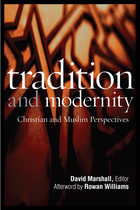
Tradition and Modernity focuses on how Christians and Muslims connect their traditions to modernity, looking especially at understandings of history, changing patterns of authority, and approaches to freedom. The volume includes a selection of relevant texts from 19th- and 20th-century thinkers, from John Henry Newman to Tariq Ramadan, accompanied by illuminating commentaries.
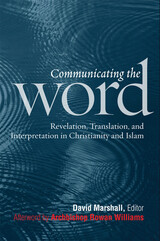
Communicating the Word is a record of the 2008 Building Bridges seminar, an annual dialogue between leading Christian and Muslim scholars convened by the Archbishop of Canterbury. Featuring the insights of internationally known Christian and Muslim scholars, the essays collected here focus attention on key scriptural texts but also engage with both classical and contemporary Islamic and Christian thought. Issues addressed include, among others, the different ways in which Christians and Muslims think of their scriptures as the “Word of God,” the possibilities and challenges of translating scripture, and the methods—and conflicts—involved in interpreting scripture in the past and today.
In his concluding reflections, Archbishop Rowan Williams draws attention to a fundamental point emerging from these fascinating contributions: “Islam and Christianity alike give a high valuation to the conviction that God speaks to us. Grasping what that does and does not mean . . . is challenging theological work.”
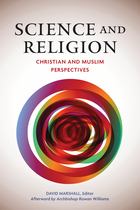
Science and Religion is a record of the 2009 Building Bridges seminar, a dialogue between leading Christian and Muslim scholars convened annually by the Archbishop of Canterbury. The essays in this volume explore how both faith traditions have approached the interface between science and religion and throw light on the ongoing challenges posed by this issue today. The volume includes a selection of relevant texts together with commentary that illuminates the scriptures, the ideas of key religious thinkers, and also the legacy of Charles Darwin.
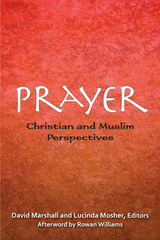
Prayer: Christian and Muslim Perspectives is a rich collection of essays, scriptural texts, and personal reflections featuring leading scholars analyzing the meaning and function of prayer within their traditions. Drawn from the 2011 Building Bridges seminar in Doha, Qatar, the essays in this volume explore the devotional practices of each tradition and how these practices are taught and learned. Relevant texts are included, with commentary, as are personal reflections on prayer by each of the seminar participants. The volume also contains a Christian reflection on Islamic prayer and a Muslim reflection on Christian prayer. An extensive account of the informal conversations at the seminar conveys a vivid sense of the lively, penetrating, but respectful dialogue that took place.
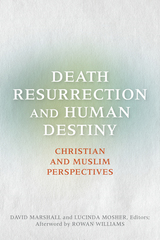
Death, Resurrection, and Human Destiny: Christian and Muslim Perspectives is a record of the 2012 Building Bridges seminar for leading Christian and Muslim scholars, convened by Rowan Williams, then Archbishop of Canterbury. The essays in this volume explore what the Bible and Qurān—and the Christian and Islamic theological traditions—have to say about death, resurrection, and human destiny. Special attention is given to the writings of al-Ghazali and Dante. Other essays explore the notion of the good death. Funeral practices of each tradition are explained. Relevant texts are included with commentary, as are personal reflections on death by several of the seminar participants. An account of the informal conversations at the seminar conveys a vivid sense of the lively, penetrating, but respectful dialogue which took place. Three short pieces by Rowan Williams provide his opening comments at the seminar and his reflections on its proceedings. The volume also contains an analysis of the Building Bridges Seminar after a decade of his leadership.

This collection explores current issues in the phonology and morphology of the major Iberian languages: Basque, Catalan, Galician, Portuguese, and Spanish. Most of the essays are based on innovative theoretical frameworks and show how recent revolutions in theoretical ideas have affected the study of these languages.
Distinguished scholars address a diverse range of topics, including: stress assignment, phonological variability, distribution of rhotics, the imperative paradigm, focus, pluralization, spirantization, intonation, prosody, apocope, epenthesis, palatalization, and depalatalization.

The Welfare Reform Act of 1996 drastically changed the delivery of social services in the United States for the first time in sixty years. More than a decade later, according to Catholic social ethicist Thomas Massaro, a disturbing gap exists between the laws we have enacted as a nation and the moral concerns we profess as a people.
Massaro contends that ethicists too often focus on strictly theoretical concerns rather than engaging concrete social and political issues, while public policy experts are uncomfortable drawing ethical judgments about legislation. United States Welfare Policy takes a fresh approach to the topic by using Catholic social teaching as a lens through which to view contemporary American welfare policies, citing the tradition's emphasis on serving the needy—including a preferential option for the poor—and the common good.
Massaro maintains that the most important outcome of welfare policy is not the cost-effectiveness of programs, but the well-being of individual families. The concluding analysis of this thoughtful study applies Catholic ethical concerns to specific aspects of welfare reform, including the funding mechanisms for the Temporary Assistance to Needy Families (TANF) program, work participation requirements affecting the bond between mothers and children, eligibility rules, the intrusion of family caps into reproductive decisions, and the imposition of disproportionate burdens upon particular demographic groups.
Massaro offers possible alternatives in each case and, as the fight over reauthorization of the welfare act continues, he calls on Catholic churches and clergy and laity to take action and advocate publicly for a more ethical approach to welfare reform.

Arguing that the state must meet strict conditions to justify interfering in at-risk pregnancies, Deborah Mathieu examines the legal and ethical concerns that arise when governments mandate the behavior of pregnant women. She explores both the pregnant woman's right to decide what happens to her body and the future child's right to be protected from avoidable damage. Mathieu addresses such topics as reproductive hazards in the workplace, mandated fetal therapy, forced lifestyle changes for pregnant women, and the future child's right to sue for lack of prenatal care. The controversy raises key issues of rights, duties, and the scope of legitimate state action, thus posing fundamental challenges to the fields of medicine, biomedical ethics, law, and public policy.
This edition has been completely updated and expanded. Mathieu presents new arguments for acceptable types of state intervention and provides specific examples. This edition also incorporates recent court decisions, especially cases involving substance abuse. The book includes both an updated bibliography and an updated reference list of relevant court cases.
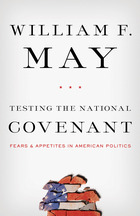
Since the end of World War II, runaway fears of Soviet imperialism, global terrorism, and anarchy have tended to drive American foreign policy toward an imperial agenda. At the same time, uncurbed appetites have wasted the environment and driven the country’s market economy into the ditch. How can we best sustain our identity as a people and resist the distortions of our current anxieties and appetites?
Ethicist William F. May draws on America’s religious and political history and examines two concepts at play in the founding of the country—contractual and covenantal. He contends that the biblical idea of a covenant offers a more promising way than the language of contract, grounded in self-interest alone, to contain our runaway anxieties and appetites. A covenantal sensibility affirms, “We the people (not simply, We the individuals, or We the interest groups) of the United States.” It presupposes a history of mutual giving and receiving and of bearing with one another that undergirds all the traffic in buying and selling, arguing and negotiating, that obtain in the rough terrain of politics. May closes with an account of the covenantal agenda ahead, and concludes with the vexing issue of immigrants and undocumented workers that has singularly tested the covenant of this immigrant nation.

In this stimulating rethinking of the basic foundations of ethics, Patricia McAuliffe derives a fundamental ethic from liberation theology. She asserts that the experience of resisting suffering, especially oppressive social suffering, must be brought from the fringe to the very center of ethics. Arguing for the conceptual priority of ethics over religion, McAuliffe defines an innovative ethic based on experience and practice. Ethics precedes religion and theology because experience and practice precede theory and interpretation, which are the human activities of religion and theology—knowledge is based on experience. She proposes that ethics can be independent of religion, but that while her liberationist ethic can be either Christian or universal, finally the poor and oppressed are the paradigm source of the disclosure of God and of final salvation.
In rethinking the basic foundations of ethics, she compares a liberationist ethic, including Latin American and women's liberation theology, with various classical ethics, and examines and critiques the works of Edward Schillebeeckx, Juan Luis Segundo, Dorothee Soelle, James Gustafson, and George Lindbeck. McAuliffe offers a flexible ethic that balances the absolute and the relative, the particular and the universal, personal and social, creativity and conditioning, practice and theory, and the ethical and religious. Combining superior scholarship with an original and creative approach to ethics, this book is likely to create debate in the fields of fundamental ethics, theology, and philosophy.

Disputes over hazardous waste sites usually are resolved by giving greater weight to expert opinion over public "not-in-my-back-yard" reactions. Challenging the assumption that policy experts are better able to discern the general welfare, Gregory E. McAvoy here proposes that citizen opinion and democratic dissent occupy a vital, constructive place in environmental policymaking.
McAvoy explores the issues of citizen rationality, the tension between democracy and technocracy, and the link between public opinion and policy in the case of an unsuccessful attempt to site a hazardous waste facility in Minnesota. He shows how the site was defeated by citizens who had reasonable doubts over the need for the facility.
Offering a comprehensive look at the policymaking process, McAvoy examines the motivations of public officials, the resources they have for shaping opinion, the influence of interest groups, and the evolution of waste reduction programs in Minnesota and other states. Integrating archival material, interviews, and quantitative survey data, he argues that NIMBY movements can bring miscalculations to light and provide an essential check on policy experts' often partisan views.
This book will be of value to those who work or study in the fields of hazardous waste policy, facility siting, environmental policy, public policy, public administration, and political science.

The just peace movement offers a critical shift in focus and imagination. Recognizing that all life is sacred and seeking peace through violence is unsustainable, the just peace approach turns our attention to rehumanization, participatory processes, nonviolent resistance, restorative justice, reconciliation, racial justice, and creative strategies of active nonviolence to build sustainable peace, transform conflict, and end cycles of violence. A Just Peace Ethic Primer illuminates a moral framework behind this praxis and proves its versatility in global contexts.
With essays by a diverse group of scholars, A Just Peace Ethic Primer outlines the ethical, theological, and activist underpinnings of a just peace ethic.These essays also demonstrate and revise the norms of a just peace ethic through conflict cases involving US immigration, racial and environmental justice, and the death penalty, as well as gang violence in El Salvador, civil war in South Sudan, ISIS in Iraq, gender-based violence in the Democratic Republic of Congo, women-led activism in the Philippines, and ethnic violence in Kenya.
A Just Peace Ethic Primer exemplifies the ecumenical, interfaith, and multicultural aspects of a nonviolent approach to preventing and transforming violent conflict. Scholars, advocates, and activists working in politics, history, international law, philosophy, theology, and conflict resolution will find this resource vital for providing a fruitful framework and implementing a creative vision of sustainable peace.

When Richard A. McCormick's The Critical Calling was first published, Andrew M. Greeley commented that "in years to come scholars will look back on Father McCormick's work and say, 'This was a man who knew what he was talking about!'" In this reissue, with a new foreword by Lisa Sowle Cahill, both first-time readers and those opening the pages for a return visit with an honored friend will find Greeley's characterization remains valid.
Father McCormick begins The Critical Calling with his personal affirmation of the work of Vatican II: "I believe the Council was a work of the Spirit—desperately needed, divinely inspired, devotedly and doggedly carried through." Yet, he stresses this was no uncritical endorsement of everything the Council did and said. Part One includes a discussion of fundamental moral theology that looks at the relationship between the church hierarchy and individual moral decision making and several chapters addressing issues precipitated by actions involving Cardinal Josef Ratzinger, now Pope Benedict XVI. Part Two focuses on practical and pastoral questions that touch on contemporary concerns ranging from abortion to AIDS, divorce, homosexuality, and teenage sexuality.
Cahill suggests that "those who lived through the tumultuous 1960s and '70s" as well as "those who came to maturity after the Council" will find this book to be an accurate and evocative reflection of the passions that imbued all those early debates and a helpful explanation why those passions ran so high. All readers will benefit from the wise insights into the controversies of that era and the more recent struggles, challenges, and debates that confront today's church.
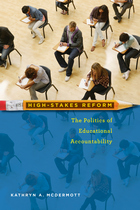
Performance accountability has been the dominant trend in education policy reform since the 1970s. State and federal policies set standards for what students should learn; require students to take “high-stakes” tests to measure what they have learned; and then hold students, schools, and school districts accountable for their performance. The goal of these policies is to push public school districts to ensure that all students reach a common threshold of knowledge and skills.
High-Stakes Reform analyzes the political processes and historical context that led to the enactment of state-level education accountability policies across the country. It also situates the education accountability movement in the broader context of public administration research, emphasizing the relationships among equity, accountability, and intergovernmental relations. The book then focuses on three in-depth case studies of policy development in Massachusetts, New Jersey, and Connecticut. Kathryn McDermott zeroes in on the most controversial and politically charged forms of state performance accountability sanctions, including graduation tests, direct state intervention in or closing of schools, and state takeovers of school districts.
Public debate casts performance accountability as either a cure for the problems of US public education or a destructive mistake. Kathryn McDermott expertly navigates both sides of the debate detailing why particular policies became popular, how the assumptions behind the policies influenced the forms they took, and what practitioners and scholars can learn from the successes and failures of education accountability policies.

Since the 1970s health care costs in the United States have doubled, insurance premiums have far outpaced inflation, and the numbers of the uninsured and underinsured are increasing at an alarming rate. At the same time the public expects better health care and access to the latest treatment technologies. Governments, desperate to contain ballooning costs, often see a market-based approach to health care as the solution; critics of market systems argue that government regulation is necessary to secure accessible care for all.
The Catholic Church generally questions the market's ability to satisfy the many human needs intrinsic to any care delivery system yet, although the Church views health care as a basic human right, it has yet to offer strategies for how such a right can be guaranteed. Mary J. McDonough, a former Legal Aid lawyer for medical cases, understands the advantages and disadvantages of market-based care and offers insight and solutions in Can a Health Care Market Be Moral?
Drawing on Catholic social teachings from St. Augustine to Pope John Paul II, McDonough reviews health system successes and failures from around the world and assesses market approaches to health care as proposed by leading economists such as Milton Friedman, Regina Herzlinger, Mark Pauly, and Alain Enthoven. Balancing aspects of these proposals with Daniel Callahan's value-dimension approach, McDonough offers a Catholic vision of health care in the United States that allows for some market mechanisms while promoting justice and concern for the least advantaged.

In this book, seventeen faculty members and administrators attempted (in 1989) to answer the fundamental question: How does a university like Georgetown maintain and develop its Catholic and Jesuit identity while actively engaging in the often conflicting political, social, and religious debates that America must urgently conduct today?

The celebration of Washington D.C. basketball is long overdue. The D.C. metro area stands second to none in its contributions to the game. Countless figures who have had a significant impact on the sport over the years have roots in the region, including E.B. Henderson, the first African-American certified to teach public school physical education, and Earl Lloyd, the first African-American to take the court in an actual NBA game. The city's Spingarn High School produced two players – Elgin Baylor and Dave Bing – recognized among the NBA’s 50 greatest at the League’s 50th anniversary celebration. No other high school in the country can make that claim.These figures and many others are chronicled in this book, the first-ever comprehensive look at the great high school players, teams and coaches in the D.C. metropolitan area. Based on more than 150 interviews, The Capital of Basketball is first and foremost a book about basketball. But in discussing the trends and evolution of the game, McNamara also uncovers the turmoil in the lives of the players and area residents as they dealt with prejudice, educational inequities, politics, and the ways the area has changed through the years.

Completion of the Human Genome Project will make possible a staggering array of new medical technologies, including new diagnostic and screening tests for inherited disorders, gene therapies, and the ability to manipulate a person's inherited, non-disease traits. Most of the attention given to the social implications of these technologies has focused on their potential to harm the individual, for example, by denying employment or insurance.
This book explores instead the potential harm to society if we unfairly distribute the enormous benefits of genetic technologies. The resulting division of society into genetic haves and have-nots would undermine the basic foundation of Western democratic society—the belief in equality of opportunity.
This book explains, in terms that can be understood by the general reader, how DNA works, what the Human Genome Project is, what these genetic technologies are and what they promise, and how they could disrupt our democratic society.
In an original contribution to the literature, the book then discusses the alternatives for avoiding the creation of a genetic underclass, ranging from halting the Human Genome Project itself to making genetic technologies available without regard to ability to pay. The authors' provocative conclusion is that a lottery in which everyone has a chance to obtain access to these technologies is the only feasible option.
This book will be of interest to anyone who wishes to learn more about the Human Genome Project and the genetic revolution that it will create, as well as those who already are familiar with the project and are concerned about the social consequences of its scientific developments.

While the field of public management has become increasingly international, research and policy recommendations that work for one country often do not work for another. Why, for example, is managerial networking important in the United States, moderately effective in the United Kingdom, and of little consequence in the Netherlands? Comparative Public Management argues that scholars must find a better way to account for political, environmental, and organizational contexts to build a more general model of public management. The volume editors propose a framework in which context influences the types of managerial actions that can be used effectively in public organizations.
After introducing the innovative framework, the book offers seven empirical chapters—cases from seven countries and a range of policy areas (health, education, taxation, and local governance)—that show how management affects performance in different contexts. Following these empirical tests, the book examines themes that emerge across cases and seeks to set an agenda for future research. Intended for students and scholars of public administration and public policy, this book will be the first to provide a comprehensive comparative assessment of management’s impact on organizational performance.
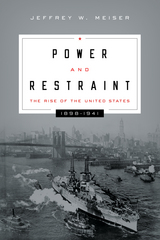
At the end of the nineteenth century, the United States emerged as an economic colossus in command of a new empire. Yet for the next forty years the United States eschewed the kind of aggressive grand strategy that had marked other rising imperial powers in favor of a policy of moderation.
In Power and Restraint, Jeffrey W. Meiser explores why the United States—counter to widely accepted wisdom in international relations theory—chose the course it did. Using thirty-four carefully researched historical cases, Meiser asserts that domestic political institutions and culture played a decisive role in preventing the mobilization of resources necessary to implement an expansionist grand strategy. These factors included traditional congressional opposition to executive branch ambitions, voter resistance to European-style imperialism, and the personal antipathy to expansionism felt by presidents like Woodrow Wilson and Franklin Roosevelt. The web of resilient and redundant political restraints halted or limited expansionist ambitions and shaped the United States into an historical anomaly, a rising great power characterized by prudence and limited international ambitions.

In this comprehensive study of psychology, theology, and religious experience the author asserts that psychology and religion can faithfully complement one another, even when the psychology in question is primarily grounded in Freudian analysis.

A comprehensive and accessible guide to learning and successfully applying QCA
Social phenomena can rarely be attributed to single causes—instead, they typically stem from a myriad of interwoven factors that are often difficult to untangle. Drawing on set theory and the language of necessary and sufficient conditions, qualitative comparative analysis (QCA) is ideally suited to capturing this causal complexity. A case-based research method, QCA regards cases as combinations of conditions and compares the conditions of each case in a structured way to identify the necessary and sufficient conditions for an outcome.
Qualitative Comparative Analysis: An Introduction to Research Design and Application is a comprehensive guide to QCA. As QCA becomes increasingly popular across the social sciences, this textbook teaches students, scholars, and self-learners the fundamentals of the method, research design, interpretation of results, and how to communicate findings.
Following an ideal typical research cycle, the book’s ten chapters cover the methodological basis and analytical routine of QCA, as well as matters of research design, causation and causal complexity, QCA variants, and the method’s reception in the social sciences. A comprehensive glossary helps to clarify the meaning of frequently used terms. The book is complemented by an accessible online R manual to help new users to practice QCA’s analytical steps on sample data and then implement with their own findings. This hands-on textbook is an essential resource for students and researchers looking for a complete and up-to-date introduction to QCA.

An illustrated guide to the history of espionage in Philadelphia and the Delaware Valley.
Philadelphia became a battleground for spies as George Washington’s Patriot army in nearby Valley Forge struggled to survive the winter of 1776-77. In the centuries that followed—through the Civil War, the rise of fascism and communism in the twentieth century, and today’s fight against terrorism—the city has been home to international intrigue and some of America’s most celebrated spies.
Spy Sites of Philadelphia takes readers inside this shadowy world to reveal the places and people of Philadelphia’s hidden history. These fascinating entries portray details of stolen secrets, clandestine meetings, and covert communications through every era of American history. Along the way, readers will meet both heroes and villains whose daring deceptions helped shape the nation.
Authors H. Keith Melton and Robert Wallace weave incredible true stories of courage and deceit that rival even the best spy fiction. Featuring over 150 spy sites in Philadelphia and its neighboring towns and counties, this illustrated guide invites readers to follow in the footsteps of moles and sleuths.
Authoritative, entertaining, and informative, Spy Sites of Philadelphia is a must-have guidebook to the espionage history of the region.

Through every era of American history, New York City has been a battleground for international espionage, where secrets are created, stolen, and passed through clandestine meetings and covert communications. Some spies do their work and escape, while others are compromised, imprisoned, and—a few—executed. Spy Sites of New York City takes you inside this shadowy world and reveals the places where it all happened.
In 233 main entries as well as listings for scores more spy sites, H. Keith Melton and Robert Wallace weave incredible true stories of derring-do and double-crosses that put even the best spy fiction to shame. The cases and sites follow espionage history from the Revolutionary War and Civil War, to the rise of communism and fascism in the twentieth century, to Russian sleeper agents in the twenty-first century. The spy sites are not only in Manhattan, Brooklyn, Queens, and the Bronx but also on Long Island and in New Jersey. Maps and 380 photographs allow readers to follow in the footsteps of spies and spy-hunters to explore the city, tradecraft, and operations that influenced wars hot and cold. Informing and entertaining, Spy Sites of New York City is a must-have guidebook to the espionage history of the Big Apple.

While the American legal system has played an important role in shaping the field of bioethics, Law and Bioethics is the first book on the subject designed to be accessible to readers with little or no legal background. Detailing how the legal analysis of an issue in bioethics often differs from the "ethical" analysis, the book covers such topics as abortion, surrogacy, cloning, informed consent, malpractice, refusal of care, and organ transplantation.
Structured like a legal casebook, Law and Bioethics includes the text of almost all the landmark cases that have shaped bioethics. Jerry Menikoff offers commentary on each of these cases, as well as a lucid introduction to the U.S. legal system, explaining federalism and underlying common law concepts. Students and professionals in medicine and public health, as well as specialists in bioethics, will find the book a valuable resource.

Despite widespread agreement that the District of Columbia's political system has collapsed, there is a serious lack of thoughtful proposals addressing the political future of the nation's capital. In this book, Edward M. Meyers examines the opinions of average Americans about Washington, D.C., in order to understand how many Americans are likely to approach the question of what reforms are needed.
Meyers first explores the political, economic, and social conditions of the District, providing an informed context for understanding and evaluating its political options. Presenting the results of in-depth qualitative research with focus groups held across the country, Meyers reveals that regardless of the participants' knowledge about the District, their beliefs in six basic concepts or schemata—such as respect for democratic rights, attitudes about race, and aversion to an intrusive federal government—molded their opinions about various options for District self-governance. The book concludes with insights into the District by local and national political leaders, including OMB Director Alice Rivlin, Jesse Jackson, Representatives Eleanor Holmes Norton, Thomas Davis, and James Walsh, and Marion Barry.

This book can best be described as an extended meditation on suffering, phenomenological in method and dialectical in point of view. The angle the author takes is that of moral self-examination rather that conventional scholarly inquiry, and his aim is to think through and evaluate a fundamental claim of our culture, from Aeschylus to Solzhenitsyn, that suffering is the greatest spiritual teacher.
To bring the argument closer to home, Professor Miller focuses on the experience of crisis as the undermining of our attempts, at all costs, to keep control of our lives. This leads him to discuss topics such as the nature of vulnerability, the difference—as sketched by Heidegger—between ordinary fear and metaphysical dread, the ordinary avoidance of suffering, and the heroic willingness to embrace it exemplified by Nietzsche's Thus Spake Zarathustra.
But this is a philosophical essay, not a historical monograph, and Miller's goal is to lead the reader ever deeper in to the heart of crisis where all our illusions about control are stripped away and we forced to face, like Oedipus, the harshest reality of all: that even our existence is not something we can claim as our own. It is here, and only here, Miller claims, the issue of religious conversion can be and must be seriously faced.
This is a demanding book, as exhilarating as it is relentless in its unmasking of the evasions and duplicities with which we shore up our day-to-day lives. The late William F. Lynch, SJ, author of Christ and Apollo, called it "a profoundly moral study of man." To read it is to risk changing your life.

The functioning of the U.S. government is a bit messier than Americans would like to think. The general understanding of policymaking has Congress making the laws, executive agencies implementing them, and the courts applying the laws as written—as long as those laws are constitutional. Making Policy, Making Law fundamentally challenges this conventional wisdom, arguing that no dominant institution—or even a roughly consistent pattern of relationships—exists among the various players in the federal policymaking process. Instead, at different times and under various conditions, all branches play roles not only in making public policy, but in enforcing and legitimizing it as well. This is the first text that looks in depth at this complex interplay of all three branches.
The common thread among these diverse patterns is an ongoing dialogue among roughly coequal actors in various branches and levels of government. Those interactions are driven by processes of conflict and persuasion distinctive to specific policy arenas as well as by the ideas, institutional realities, and interests of specific policy communities. Although complex, this fresh examination does not render the policymaking process incomprehensible; rather, it encourages scholars to look beyond the narrow study of individual institutions and reach across disciplinary boundaries to discover recurring patterns of interbranch dialogue that define (and refine) contemporary American policy.
Making Policy, Making Law provides a combination of contemporary policy analysis, an interbranch perspective, and diverse methodological approaches that speak to a surprisingly overlooked gap in the literature dealing with the role of the courts in the American policymaking process. It will undoubtedly have significant impact on scholarship about national lawmaking, national politics, and constitutional law. For scholars and students in government and law—as well as for concerned citizenry—this book unravels the complicated interplay of governmental agencies and provides a heretofore in-depth look at how the U.S. government functions in reality.
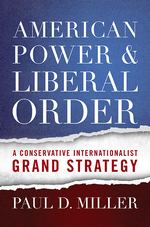
Paul D. Miller offers a tough minded critique of recent trends in American grand strategy. He rejects retrenchment but also the excesses of liberal internationalism. He prescribes a conservative internationalist grand strategy to preserve the American security and leadership in the world while avoiding overstretch.
Originally written before the 2016 US presidential election, this first paperback edition contains a new preface that repositions the book’s argument for the Trump era. Miller explains why President Trump’s nationalist vision for American grand strategy damages US interests and world order. Miller blends academic rigor with his experiences as former member of the National Security Council and intelligence community to offer prescriptions for US grand strategy. He advocates for narrowing regional priorities and focusing on five strategic objectives: balancing against the nuclear autocracies, championing liberalism to maintain a favorable balance of power, thwarting the transnational jihadist movement, investing in governance in weak and failed states, and strengthening homeland security.
This book is a must read for scholars and students of international affairs and for anyone who is concerned about America’s role in the world.

At a time when the concept of religion-based politics has taken on new and sometimes ominous tones—even within the United States—it is not only right, but also urgently necessary that William Lee Miller revisit his profound exploration of the place of religious liberty and church and state in America. For this revised edition of The First Liberty, Miller has written a pointed new introduction, discussing how religious liberty has taken on deeper dimensions in a post-9/11 world. With new material on recent Supreme Court cases involving church-state relations and a new concluding chapter on America's religious and political landscape, this volume is an eloquent and thorough interpretation of how religious faith and political freedom have blended and fused to form part of our collective history-and most importantly, how each concept must respect the boundaries of the other.
Though many claim the United States to be a "Christian Nation," Miller provides a fascinatingly vivid account of the philosophical skirmishes and political machinations that led to the "wall of separation" between church and state. That famous phrase is Jefferson's, though it does not appear in the Declaration of Independence nor in the Constitution. But Miller follows this seminal idea from three great standard-bearers of religious liberty: Jefferson, Madison, and Roger Williams. Jefferson, who wrote the Virginia Statute for Religious Freedom, the precursor of the First Amendment of the Constitution; James Madison, who was politically responsible for Virginia's acceptance of religious liberty and who, a few years later, helped draft the Bill of Rights; and the even earlier figure, the radical dissenter Roger Williams, who propounded the idea of religious freedom not as a rational secularist but out of a deeply held spiritual faith.
Miller re-creates the fierce and vibrant debate among the founding fathers over the means of establishing public virtue in the absence of established religion—a debate that still reverberates in today's passionate arguments about civil rights, school prayer, abortion, Christmas crèches, conscientious objection during warfare—and demonstrates how the right to hold any religious belief has dynamically shaped American political life.

Rapid and controversial, the spread of school choice initiatives across the United States has radically changed political debate about public education. In this book, Michael Mintrom explores the complex world of open-enrollment policies, charter schools and voucher plans to reveal how and why school choice has become a major issue, and he draws important conclusions about how innovative individuals can spur significant change in the policy arena.
Policy entrepreneurs—individuals who take up a cause and make it part of the political agenda—have largely remained background figures without clear definition in the policymaking literature. This book is the first comprehensive and systematic treatment of the concept of policy entrepreneurship, providing an important foundation for explaining how policy proposals are initiated, considered, and adopted.
Mintrom uses the emergence of school choice in state politics to examine how policy change originates. He shows how policy entrepreneurs have been instrumental in placing school choice onto state legislative agendas, despite the lack of compelling evidence about its merits, and how they use social networks, reframe policy issues, and attempt to shift the sites of policy debate.
Blending innovative theory with both qualitative and quantitative investigation, Mintrom explains how energetic individuals made school choice a real choice. In doing so, he changes our broader understanding of how policy is formed.

Policymaking is of its very nature a people-centered business-a good reason why highly effective policy analysts display not only superb technical expertise but excellent people skills as well. Those "people skills" include the ability to manage professional relationships, to learn from others about policy issues, to give presentations, to work in teams, to resolve conflict, to write for multiple audiences, and to engage in professional networking. Training programs for policy analysts often focus on technical skills. By working to enhance their people skills, policy analysts can increase their ability to produce technical work that changes minds. Fortunately, this unique book fills the gaps in such programs by covering the "people side" of policy analysis.
Beyond explaining why people skills matter, this book provides practical, easy-to-follow advice on how policy analysts can develop and use their people skills. Each chapter provides a Skill Building Checklist, discussion ideas, and suggestions for further reading. People Skills is essential reading for anyone engaged in public policymaking and public affairs as well as all policy analysts. Completely changing how we think about what it means to be an effective policy analyst, People Skills for Policy Analysts provides straightforward advice for students of policy analysis and public management as well as practitioners just starting their professional lives.

Some of humankind's greatest tools have been forged in the research laboratory. Who could argue that medical advances like antibiotics, blood transfusions, and pacemakers have not improved the quality of people's lives? But with each new technological breakthrough there comes an array of consequences, at once predicted and unpredictable, beneficial and hazardous.
Outcry over recent developments in the reproductive and genetic sciences has revealed deep fissures in society's perception of biotechnical progress. Many are concerned that reckless technological development, driven by consumerist impulses and greedy entrepreneurialism, has the potential to radically shift the human condition—and not for the greater good. Biotechnology and the Human Good builds a case for a stewardship deeply rooted in Judeo-Christian theism to responsibly interpret and assess new technologies in a way that answers this concern.
The authors jointly recognize humans not as autonomous beings but as ones accountable to each other, to the world they live in, and to God. They argue that to question and critique how fields like cybernetics, nanotechnology, and genetics might affect our future is not anti-science, anti-industry, or anti-progress, but rather a way to promote human flourishing, common sense, and good stewardship.
A synthetic work drawing on the thought of a physician, ethicists, and a theologian, Biotechnology and the Human Good reminds us that although technology is a powerful and often awe-inspiring tool, it is what lies in the heart and soul of who wields this tool that truly makes the difference in our world.

In a fast-paced, complicated, and evermore dangerous world it is easy to become self-absorbed and consumed with our own problems. There is one place, however, where we put our self-centered concerns aside, and our deep, common humanity is profoundly touched. That place is where sick children dwell.
It is no less difficult—and perhaps even more difficult in many ways—for physicians who have chosen to attend to the health and well-being of gravely ill or dying children. Margaret Mohrmann has devoted most of her professional life to them, and in Attending Children she shares the remarkable education those children and their families have given her. Her narratives are both painful and hopeful, tragic and funny, full of remarkable characters and sometimes bizarre families.
Mohrmann has sifted through her thirty years as a pediatrician, and with poignancy, humor, and uncompromising honesty, she shares her sometimes stumbling but always deeply caring journey through a land where, sometimes, small hands have to be let go too soon. She introduces us to not only the physical challenges she, her colleagues, and her patients encounter, but the spiritual ones as well.
Attending Children is a unique experience as Mohrmann takes the reader on a doctor's rounds over many years to meet the faces and the struggles, the heartaches and the joys of being a pediatrician. In the case of Margaret Mohrmann and her patients, no one could ask for better teachers.

A front-burner issue on the public policy agenda today is the increased use of partnerships between government and nongovernmental entities, including faith-based social service organizations. In the wake of President Bush's faith-based initiative, many are still wondering about the effectiveness of these faith-based organizations in providing services to those in need, and whether they provide better outcomes than more traditional government, secular nonprofit, and for-profit organizations. In Faith, Hope, and Jobs, Stephen V. Monsma and J. Christopher Soper study the effectiveness of 17 different welfare-to-work programs in Los Angeles County—a county in which the U.S. government spends 14% of its entire welfare budget—and offer groundbreaking insight into understanding what works and what doesn't.
Monsma and Soper examine client assessment of the programs, their progress in developing attitudes and resources important for finding self-supporting employment, and their experience in finding actual employment. The study reveals that the clients of the more explicitly faith-based programs did best in gaining in social capital and were highly positive in evaluating the religious components of their programs. For-profit programs tended to do the best in terms of their clients finding employment. Overall, the religiously active respondents tended to experience better outcomes than those who were not religiously active but surprisingly, the religiously active and non-active tended to do equally well in faith-based programs.
Faith, Hope, and Jobs concludes with three sets of concrete recommendations for public policymakers, social service program managers, and researchers.

NATO’s 2010 Strategic Concept officially broadened the alliance’s mission beyond collective defense, reflecting a peaceful Europe and changes in alliance activities. NATO had become an international security facilitator, a crisis-manager even outside Europe, and a liberal democratic club as much as a mutual-defense organization. However, Russia’s re-entry into great power politics has changed NATO’s strategic calculus.
Russia’s aggressive annexation of Crimea in 2014 and its ongoing military support for Ukrainian separatists dramatically altered the strategic environment and called into question the liberal European security order. States bordering Russia, many of which are now NATO members, are worried, and the alliance is divided over assessments of Russia’s behavior. Against the backdrop of Russia’s new assertiveness, an international group of scholars examines a broad range of issues in the interest of not only explaining recent alliance developments but also making recommendations about critical choices confronting the NATO allies. While a renewed emphasis on collective defense is clearly a priority, this volume’s contributors caution against an overcorrection, which would leave the alliance too inwardly focused, play into Russia’s hand, and exacerbate regional fault lines always just below the surface at NATO. This volume places rapid-fire events in theoretical perspective and will be useful to foreign policy students, scholars, and practitioners alike.

In literature and film the spy chief is an all-knowing, all-powerful figure who masterfully moves spies into action like pieces on a chessboard. How close to reality is that depiction, and what does it really take to be an effective leader in the world of intelligence?
This first volume of Spy Chiefs broadens and deepens our understanding of the role of intelligence leaders in foreign affairs and national security in the United States and United Kingdom from the early 1940s to the present. The figures profiled range from famous spy chiefs such as William Donovan, Richard Helms, and Stewart Menzies to little-known figures such as John Grombach, who ran an intelligence organization so secret that not even President Truman knew of it. The volume tries to answer six questions arising from the spy-chief profiles: how do intelligence leaders operate in different national, institutional, and historical contexts? What role have they played in the conduct of international relations and the making of national security policy? How much power do they possess? What qualities make an effective intelligence leader? How secretive and accountable to the public have they been? Finally, does popular culture (including the media) distort or improve our understanding of them? Many of those profiled in the book served at times of turbulent change, were faced with foreign penetrations of their intelligence service, and wrestled with matters of transparency, accountability to democratically elected overseers, and adherence to the rule of law. This book will appeal to both intelligence specialists and general readers with an interest in the intelligence history of the United States and United Kingdom.

Save when you purchase Volumes 1 and 2 in a bundle!
The first volume of Spy Chiefs broadens and deepens our understanding of the role of intelligence leaders in foreign affairs and national security in the United States and United Kingdom from the early 1940s to the present. The figures profiled range from famous spy chiefs such as William Donovan, Richard Helms, and Stewart Menzies to little-known figures such as John Grombach, who ran an intelligence organization so secret that not even President Truman knew of it. The volume tries to answer six questions arising from the spy-chief profiles: how do intelligence leaders operate in different national, institutional, and historical contexts? What role have they played in the conduct of international relations and the making of national security policy? How much power do they possess? What qualities make an effective intelligence leader? How secretive and accountable to the public have they been? Finally, does popular culture (including the media) distort or improve our understanding of them? Many of those profiled in the book served at times of turbulent change, were faced with foreign penetrations of their intelligence service, and wrestled with matters of transparency, accountability to democratically elected overseers, and adherence to the rule of law. This book will appeal to both intelligence specialists and general readers with an interest in the intelligence history of the United States and United Kingdom.
The second volume of Spy Chiefs goes beyond the commonly studied spy chiefs of the United States and the United Kingdom to examine leaders from Renaissance Venice to the Soviet Union, Germany, India, Egypt, and Lebanon in the twentieth century. It provides a close-up look at intelligence leaders, good and bad, in the different political contexts of the regimes they served. The contributors to the volume try to answer the following questions: how do intelligence leaders operate in these different national, institutional and historical contexts? What role have they played in the conduct of domestic affairs and international relations? How much power have they possessed? How have they led their agencies and what qualities make an effective intelligence leader? How has their role differed according to the political character of the regime they have served? The profiles in this book range from some of the most notorious figures in modern history, such as Feliks Dzerzhinsky and Erich Mielke, to spy chiefs in democratic West Germany and India.
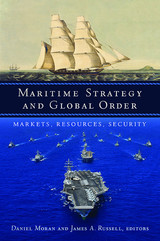
Taken for granted as the natural order of things, peace at sea is in fact an immense and recent achievement—but also an enormous strategic challenge if it is to be maintained in the future. In Maritime Strategy and Global Order, an international roster of top scholars offers historical perspectives and contemporary analysis to explore the role of naval power and maritime trade in creating the international system.
The book begins in the early days of the industrial revolution with the foundational role of maritime strategy in building the British Empire. It continues into the era of naval disorder surrounding the two world wars, through the passing of the Pax Britannica and the rise of the Pax Americana, and then examines present-day regional security in hot spots like the South China Sea and Arctic Ocean. Additional chapters engage with important related topics such as maritime law, resource competition, warship evolution since the end of the Cold War, and naval intelligence.
A first-of-its-kind collection, Maritime Strategy and Global Order offers scholars, practitioners, students, and others with an interest in maritime history and strategic issues an absorbing long view of the role of the sea in creating the world we know.
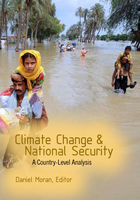
In this unique and innovative contribution to environmental security, an international team of scholars explore and estimate the intermediate-term security risks that climate change may pose for the United States, its allies and partners, and for regional and global order through the year 2030. In profiles of forty-two key countries and regions, each contributor considers the problems that climate change will pose for existing institutions and practices. By focusing on the conduct of individual states or groups of nations, the results add new precision to our understanding of the way environmental stress may be translated into political, social, economic, and military challenges in the future.
Countries and regions covered in the book include China, Vietnam, The Philippines, Indonesia, India, Pakistan, Bangladesh, Central Asia, the European Union, the Persian Gulf, Egypt, Turkey, the Maghreb, West Africa, Southern Africa, the Northern Andes, and Brazil.

Medicine's changing economics have already fundamentally, permanently altered the relationship between physician and patient, E. Haavi Morreim argues. Physicians must weigh a patient's interests against the legitimate, competing claims of other patients, of payers, of society as a whole, and sometimes even of the physician himself.
Focusing on actual situations in the clinical setting, Morreim explores the complex moral problems that current economic realities pose for the practicing physician. She redefines the moral obligations of both physicians and patients, traces the specific effects of these redefined obligations on clinical practice, and explores the implications for patients as individuals and for national health policy. Although the book focuses on health care in the United States, physicians everywhere are likely to face many of the same basic issues of clinical ethics, because every system of health care financing and distribution today is constrained by finite resources.

This bilingual collection of essays, the fruits of a conference held in 1989 to commemorate the join Bicentennials of Georgetown University and the French Revolution, illuminates the various ways in which the American Revolution and its aftermath directly and indirectly influenced France before and after the French Revolution. The essays cluster around several basic themes: the condition of Native Americans and African-Americans, French perceptions of political, religious, and economic issues in the new republic, and the ways in which French images of America were affected by travel literature and the performing and plastic arts. The intercultural and interdisciplinary approaches taken by the fifteen authors are equally various and include social and political history, literary history and criticism, and linguistics.

This expanded edition serves as a comprehensive reference guide as well as a systematic, learner-centered approach for native English-speaking students. The author addresses the most common problems of writing in French, and progresses from words to sentences to paragraphs to the elaboration of accurate and authentic expository prose.
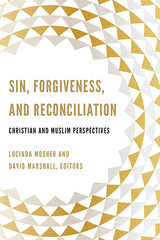
Sin, Forgiveness, and Reconciliation: Christian and Muslim Perspectives is a collection of essays and scripture passages studied at the 2014 Building Bridges seminar.
Thoughtful and provocative, the book begins with the complete texts of the opening lectures by Veli-Matti Kärkkäinen and Jonathan A. C. Brown and contains essays by Christoph Schwöbel, Ayman Shabana, Susan Eastman, Mohammad Hassan Khalil, Philip Sheldrake, and Asma Afsaruddin. Peppered throughout with relevant scripture passages and commentary, the text concludes with an extensive account of the informal conversations at the seminar that conveys the lively and respectful dialogue that is the hallmark of this meeting.

This volume of the Building Bridges Seminar, Power: Divine and Human, Christian and Muslim Perspectives, comprises pairs of essays by Christians and Muslims which introduce texts for dialogical study, plus the actual text-excerpts themselves.
This new book goes far beyond mere reporting on a dialogical seminar; rather, it provides guidance and materials for constructing a similar dialogical experience on a particular topic. As a resource for comparative theology, Power: Divine and Human is unique in that it takes up a topic not usually explored in depth in Christian-Muslim conversations. It is written by scholars for scholars. However, in tone and structure, it is suitable for the non-specialist as well. Students (undergraduate and graduate), religious leaders, and motivated non-specialists will find it readable and useful. While it falls solidly in the domain of comparative theology, it can also be used in courses on dialogical reading of scripture, interreligious relations, and political philosophy.

A unique interreligious dialogue provides needed context for deeper understanding of interfaith relations, from ancient to modern times
Freedom is far from straightforward as a topic of comparative theology. While it is often identified with modernity and even postmodernity, freedom has long been an important topic for reflection by both Christians and Muslims, discussed in both the Bible and the Quran. Each faith has a different way of engaging with the idea of freedom shaped by the political context of their beginnings. The New Testament emerged in a region under occupation by the Roman Empire, whereas the Quran was first received in tribal Arabia, a stateless environment with political freedom.
Freedom: Christian and Muslim Perspectives, edited by Lucinda Mosher, considers how Christian and Muslim faith communities have historically addressed many facets of freedom. The book presents essays, historical and scriptural texts, and reflections. Topics include God's freedom, human freedom to obey God, autonomy versus heteronomy, autonomy versus self-governance, freedom from incapacitating addiction and desire, hermeneutic or discursive freedom vis-à-vis scripture and tradition, religious and political freedom, and the relationship between personal conviction and public order.
The rich insights expressed in this unique interfaith discussion will benefit readers—from students and scholars, to clerics and community leaders, to politicians and policymakers—who will gain a deeper understanding of how these two communities define freedom, how it is treated in both religious and secular texts, and how to make sense of it in the context of our contemporary lives.

Conventional wisdom would have it that believing in one God is straightforward; that Muslims are expert at monotheism, but that Christians complicate it, weaken it, or perhaps even abandon it altogether by speaking of the Trinity. In this book, Muslim and Christian scholars challenge that opinion. Examining together scripture texts and theological reflections from both traditions, they show that the oneness of God is taken as axiomatic in both, and also that affirming God's unity has raised complex theological questions for both. The two faiths are not identical, but what divides them is not the number of gods they believe in.
The latest volume of proceedings of The Building Bridges Seminar—a gathering of scholar-practitioners of Islam and Christianity that meets annually for the purpose of deep study of scripture and other texts carefully selected for their pertinence to the year’s chosen theme—this book begins with a retrospective on the seminar’s first fifteen years and concludes with an account of deliberations and discussions among participants, thereby providing insight into the model of vigorous and respectful dialogue that characterizes this initiative.
Contributors include Richard Bauckham, Sidney Griffith, Christoph Schwöbel, Janet Soskice, Asma Afsaruddin, Maria Dakake, Martin Nguyen, and Sajjad Rizvi. To encourage further dialogical study, the volume includes those scripture passages and other texts on which their essays comment. A unique resource for scholars, students, and professors of Christianity and Islam.

A record of the 2015 Building Bridges Seminar for leading Christian and Muslim scholars, this collection of essays explores the nature of divine and human agency through themes of creation’s goal, humankind’s dignity and task, and notions of sovereignty. Part I sets the context for the book with “Human Action within Divine Creation: A Muslim Perspective” by Mohsen Kadivar of Duke University and “On the Possibility of Holy Living: A Christian Perspective” by Lucy Gardner of Oxford University. The rest of the book includes paired essays—one from a Muslim perspective, one from a Christian perspective—that introduce scriptural material with commentary to aid readers in conducting dialogical study. In her conclusion, coeditor Lucinda Mosher digests the illuminating small-group conversations that lie at the heart of the Building Bridges initiative, conversations that convey a vivid sense of the lively, penetrating but respectful dialogue for which the project is known. This unique volume will be a valuable resource to scholars, students, and professors of Christianity and Islam.
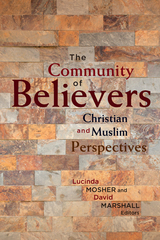
The Community of Believers offers the proceedings of the 2013 Building Bridges seminar, a dialogue between leading Christian and Muslim scholars under the stewardship of Georgetown University.
These essays consider such themes as the Church as mystical body of Christ versus the Church as proclamation; the roots and uses of the term ummah and its development over time; Christian desires for communion, experiences of division, and approaches to unity; the history of Muslim disunity; twentieth-century Christian ecclesiology and its responses to a post-Christendom and post-Christian world; and the Arab Spring as a case study for contemplating accommodationism, conservatism, reformism, and fundamentalism as Muslim strategies to address the pressures of modernism. The volume also includes texts and commentaries used in the seminar’s discussions of each topic and a concluding essay summarizing the tone, content, and style of participant exchanges throughout the seminar.

A comprehensive collection provides guidance and deep insight from a variety of experts in this emerging field
The rapidly developing field of interreligious studies fosters scholarship engaging two or more religious traditions at a time. Inherently multidisciplinary, the field brings the academic consideration of religions into conversation with the humanities and social sciences, employing relational, intersectional, experiential, and dialogical methodologies as it examines the interrelationship of individuals and groups with differing alignments toward religion.
Edited by Lucinda Mosher, The Georgetown Companion to Interreligious Studies features an international roster of practitioners of or experts on Judaism, Christianity, Islam, Hinduism, Jainism, Sikhism, Buddhism, Ruism, Humanism, and African, North American, and South American Indigenous lifeways. Each author offers a unique perspective on the nature of this emerging discipline.
This companion provides fifty thought-provoking chapters on the history, priorities, challenges, distinguishing pedagogies, and practical applications of interreligious studies. Anyone who seeks a deeper appreciation of this relatively new academic field will find it useful as a textbook or research resource.

Long-acting and reversible contraceptives, such as Norplant and Depo-Provera, have been praised as highly effective, moderately priced, and generally safe. Yet, as this book argues, the very qualities that make these contraceptives an important alternative for individual choice in family planning also make them a potential tool of coercive social policy. For example, policymakers have linked their use to welfare benefits, and judges, to probation agreements. In this book, authors from the fields of medicine, ethics, law, and the social sciences probe the unique and vexing ethical and policy issues raised by long-acting contraception.
The book offers comprehensive ethical guidelines for health care professionals and policymakers, as well as an ethical framework for analyzing policies and practices concerning long?acting contraceptives. The authors consider cultural, social, and ethical issues pertaining to contraception, and they provide historical and scientific background on today's controversies. They explore alternative conceptual and theoretical frameworks, including analyses of autonomy, coercion, and responsibility in reproductive decisions. This volume also notes the special concerns that arise when policies promoting long?term birth control target low-income women and women of color, and when these contraceptives are used in developing countries.

This book explores how policy ideas are spread—or diffused—in an age in which policymaking has become increasingly complex and specialized. Using the concept of enterprise zones as a case study in policy diffusion, Karen Mossberger compares the process of their adoption in Virginia, Indiana, Michigan, New York, and Massachusetts over a twelve-year period.
Enterprise zones were first proposed by the Reagan administration as a supply-side effort to reenergize inner cities, and they were eventually embraced by liberals and conservatives alike. They are a compelling example of a policy idea that spread and evolved rapidly. Mossberger describes the information networks and decisionmaking processes in the five states, assessing whether enterprise zones spread opportunistically, as a mere fad, or whether well-informed deliberation preceded their adoption.

That there is a "digital divide"—which falls between those who have and can afford the latest in technological tools and those who have neither in our society—is indisputable. Virtual Inequality redefines the issue as it explores the cascades of that divide, which involve access, skill, political participation, as well as the obvious economics. Computer and Internet access are insufficient without the skill to use the technology, and economic opportunity and political participation provide primary justification for realizing that this inequality is a public problem and not simply a matter of private misfortune.
Defying those who say the divide is growing smaller, this volume, based on a unique national survey that includes data from over 1800 respondents in low-income communities, shows otherwise. In addition to demonstrating why disparities persist in such areas as technological abilities, the survey also shows that the digitally disadvantaged often share many of the same beliefs as their more privileged counterparts. African-Americans, for instance, are even more positive in their attitudes toward technology than whites are in many respects, contrary to conventional wisdom. The rigorous research on which the conclusions are based is presented accessibly and in an easy-to-follow manner.
Not content with analysis alone, nor the untangling of the complexities of policymaking, Virtual Inequality views the digital divide compassionately in its human dimensions and recommends a set of practical and common-sense policy strategies. Inequality, even in a virtual form this book reminds us, is unacceptable and a situation that society is compelled to address.

Efficiency. Innovation. Results. Accountability. These, advocates claim, are the fruits of performance management. In recent decades government organizations have eagerly embraced the performance model—but the rush to reform has not delivered as promised.
Drawing on research from state and federal levels, Moynihan illustrates how governments have emphasized some aspects of performance management—such as building measurement systems to acquire more performance data—but have neglected wider organizational change that would facilitate the use of such information. In his analysis of why and how governments in the United States have made the move to performance systems, Moynihan identifies agency leadership, culture, and resources as keys to better implementation, goal-based learning, and improved outcomes.
How do governments use the performance information generated under performance systems? Moynihan develops a model of interactive dialogue to highlight how performance data, which promised to optimize decision making and policy change for the public's benefit, has often been used selectively to serve the interests of particular agencies and individuals, undermining attempts at interagency problem solving and reform.
A valuable resource for public administration scholars and administrators, The Dynamics of Performance Management offers fresh insight into how government organizations can better achieve their public service goals.

Are you looking for a career with professional rewards and personal satisfaction? Perhaps you'd like to find meaningful employment in the field of international relations? Working World is the perfect resource for making sound career choices, and is particularly valuable for those interested in exploring a career in international education, exchange, and development.
Sherry Mueller, president emeritus of a large nonprofit organization with an international focus, and Mark Overmann, a young professional on his way up, serve as spirited guidance counselors and offer valuable insight on launching a career, not just landing a job. The two authors—representing contrasting personalities, levels of experience, and different generations—engage in an entertaining dialogue designed to highlight alternative approaches to the same destination: making a difference in the world. With a rich mix of anecdotes and advice, the two authors present their individual perspectives on career development: identifying your cause, the art of networking, the value of mentors, and careers as "continuous journeys." Mueller and Overmann push job seekers to challenge assumptions about what it means to pursue a career in international relations and to recognize that the path to career success is rarely straight.
To help the job seeker chart the best course, Working World provides specific resources including annotated lists of selected organizations, websites, and further reading. Profiles of twelve professionals, from promising young associates to presidents and CEOs, illustrate the book's main topics. Each professional provides insight into his or her career choices, distills lessons learned, and offers practical advice about building a career in international affairs. All of these resources were chosen specifically to help job seekers map the next steps toward the internship, job, or other opportunity that will give shape to the career they envision.
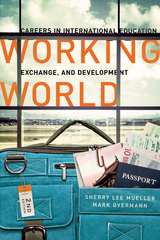
Now available in a new second edition, Working World: Careers in International Education, Exchange, and Development offers an engaging guide for cause-oriented people dedicated to begin or enhance careers in the now burgeoning fields of international affairs. Mueller and Overmann expand their original dialogue between a career veteran and a young professional to address issues that recognize the meteoric rise of social media and dramatic geopolitical events. They explore how the idea of an international career has shifted: nearly every industry taking on more and more international dimensions, while international skills—linguistic ability, intercultural management, and sensitivity—become ever more highly prized by potential employers.
This second edition of Working World offers ten new and four significantly updated profiles as well as new and expanded concepts that include work-life balance, the importance of informational interviews, moving on, and key building blocks for international careers.Like the award-winning first edition, Working World is a rare and valuable resource to students and graduates interested in careers in international affairs, mid-career professionals who want to make a career change or shift, as well as guidance counselors and career center specialists at universities.
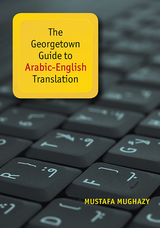
"Translation is like a reverse-engineering process—whereby, say, we might take apart a clock made of metal parts in order to build a functioning replica made entirely of plastic. Our final product will not look the same as the original clock, and it would be impossible to simply copy the designs of its inner workings, because plastic and metals have very different properties. For example, we cannot make small plastic springs or very thin gears of plastic. But these changes do not matter; the only thing that matters is that our replica will tell the time correctly.”—From the Introduction
The Georgetown Guide to Arabic-English Translation is an essential step-by-step, practical manual for advanced learners of Arabic interested in how to analyze and accurately translate nonfiction Arabic texts ranging from business correspondence to textbooks.
Mustafa Mughazy, a respected Arabic linguist, presents an innovative, functional approach that de-emphasizes word-for-word translation. Based on the Optimality Theory, it favors remaining faithful to the communicative function of the source material, even if this means adding explanatory text, reconfiguring sentences, paraphrasing expressions, or omitting words.
From how to select a text for translation or maintain tense or idiom, to how to establish translation patterns, The Georgetown Guide to Arabic-English Translation is useful both as a textbook and a reference. An invaluable set of appendices offers shortcuts to translate particularly difficult language like abbreviations, collocations, and common expressions in business correspondence, while authentic annotated texts provide the reader opportunities to practice the strategies presented in the book. A must-read for advanced learners of Arabic, this is a book every scholar and graduate-level student will wish to own.

Kazakh, a Turkic language that uses Cyrillic script, is the official state language of Kazakhstan and is also spoken by people in parts of China, Russia, and neighboring Central Asian countries. This unique learner’s dictionary features simple definitions, literal translations, English equivalents, full example sentences, and grammar and usage for over 2,000 Kazakh idioms.
As students progress to the upper-intermediate and advanced levels of language learning, they come in contact with cultural concepts embedded in simple words that they have learned as part of everyday vocabulary. Thus, they expand their vocabulary into idiomatic expressions. Upper-intermediate and advanced learners of Kazakh will find this extensive reference work useful to understand those culturally bound idioms.
Idioms in this reference volume are organized into categories—the human body, food, clothing, color, number, animals, and nature—that best represent the topics on which language learners focus at the beginning and intermediate levels of language study. Five indexes make finding the idiom you want—by idiom, keyword, or expression in both Kazakh and English—easier.

In our increasingly globalized world, U.S. trade policy stands at the intersection of foreign and domestic affairs. This book explains trade policy in terms of domestic politics, presenting a concise account of its origins and political significance.
Although trade policy is a component of foreign policy, Philip A. Mundo explains how it is rooted in the domestic policy process and carries with it enormous implications for domestic affairs. He reviews the growing importance of trade policy since World War II — particularly over the past twenty years — and shows how recent policies like NAFTA are shaped by the domestic agenda.
Mundo explains trade policy as the product of a three-stage process comprising agenda setting, program adoption, and implementation. He reviews this process in terms of the ideas that inform trade policy, the interests that seek to influence it, and the institutions that shape it. He also addresses the importance of specific measures, such as administrative relief and trade sanctions.
This book distills the essence of the trade policy process into a concise, innovative framework accessible to students and general readers. With the growing importance of trade policy, it makes explicit many of the subtleties surrounding policymaking while fully explicating the legal and international context in which trade operates.

This volume analyzes the politics of hazardous waste siting and explores promising new strategies for siting facilities. Existing approaches to waste siting facilities have almost entirely failed, across all industrialized countries, largely because of community or NIMBY (Not in My Backyard) opposition. This volume examines a new strategy, voluntary choice siting—a process requiring mutual decisions negotiated between facility developers and the host communities. This bottom-up approach preserves democratic rights, recognizes the importance of public perceptions, and addresses issues of equity.
In this collection, an interdisciplinary group of experts probes recent examples of waste facilities siting in the United States, Canada, Germany, and Japan. Both the successes and the failures presented offer practical insights into the siting process. The book includes an introductory review of the literature on facility siting and the NIMBY phenomenon as well as instructive essays on the use of voluntary processes in facilities siting.
This book will be of value to policymakers, industry, and environmental groups, as well as to those working in environmental studies and engineering, political science, public health, geography, planning, and business economics.
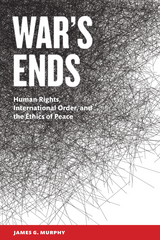
Before military action, and even before mobilization, the decision on whether to go to war is debated by politicians, pundits, and the public. As they address the right or wrong of such action, it is also a time when, in the language of the just war tradition, the wise would deeply investigate their true claim to jus ad bellum (“the right of war”). Wars have negative consequences, not the least impinging on human life, and offer infrequent and uncertain benefits, yet war is part of the human condition.
James G. Murphy’s insightful analysis of the jus ad bellum criteria—competent authority, just cause, right intention, probability of success, last resort, and proportionality—is grounded in a variety of contemporary examples from World War I through Vietnam, the "soccer war" between Honduras and El Salvador, Afghanistan, and the Middle East conflict. Murphy argues persuasively that understanding jus ad bellum requires a primary focus on the international common good and the good of peace. Only secondarily should the argument about going to war hinge on the right of self-defense; in fact, pursuing the common good requires political action, given that peace is not simply the absence of violence. He moves on to demonstrate the interconnectedness of the jus ad bellum criteria, contending that some criteria depend logically on others—and that competent authority, not just cause, is ultimately the most significant criterion in an analysis of going to war. This timely study will be of special interest to scholars and students in ethics, war and peace, and international affairs.
READERS
Browse our collection.
PUBLISHERS
See BiblioVault's publisher services.
STUDENT SERVICES
Files for college accessibility offices.
UChicago Accessibility Resources
home | accessibility | search | about | contact us
BiblioVault ® 2001 - 2024
The University of Chicago Press









